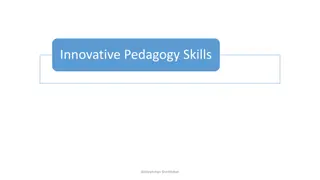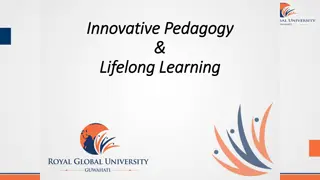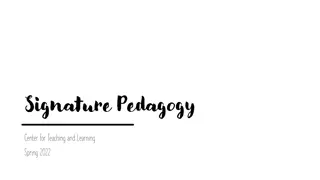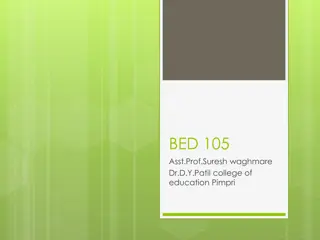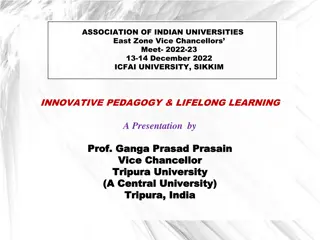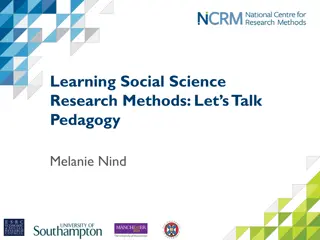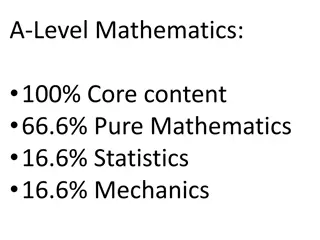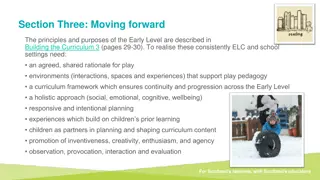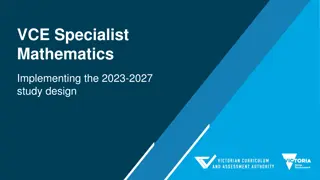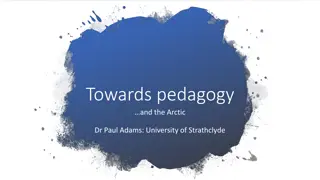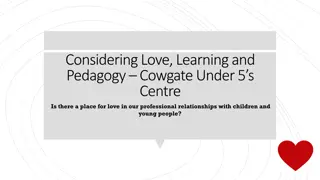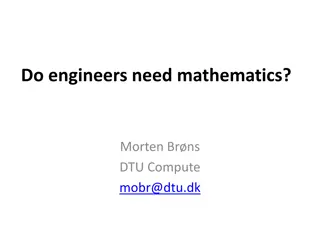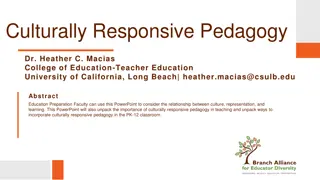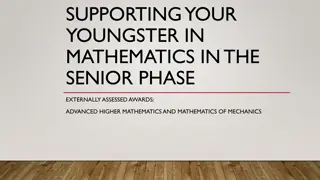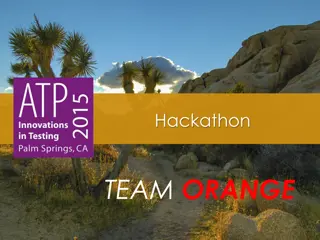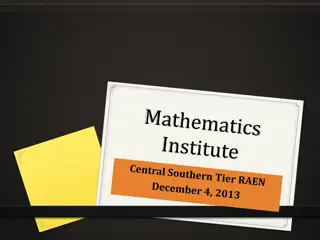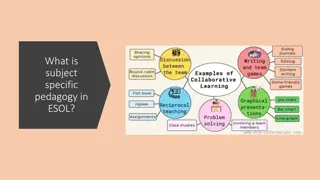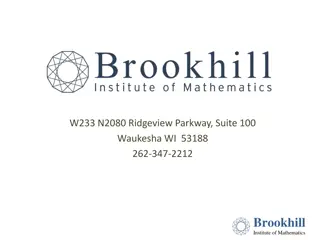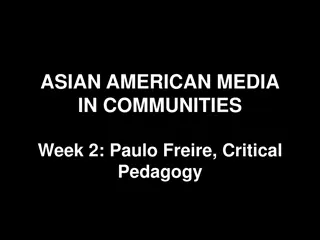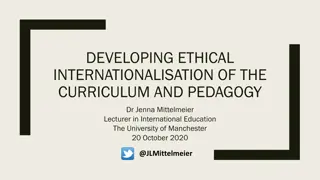Importance of Mathematics Education and Pedagogy
Mathematics plays a crucial role in quantifying ideas, fostering logical thinking, problem-solving, and enhancing critical thinking skills. Mathematics education helps develop competencies in learners through learner-friendly pedagogies, ensuring progress and achievement of learning outcomes. The nature of mathematics involves its own language, precise logic, and universal principles, while also being applied across various scientific disciplines. Effective pedagogical processes at the primary stage involve providing diverse experiences and opportunities for children to verbalize their experiences.
Download Presentation

Please find below an Image/Link to download the presentation.
The content on the website is provided AS IS for your information and personal use only. It may not be sold, licensed, or shared on other websites without obtaining consent from the author.If you encounter any issues during the download, it is possible that the publisher has removed the file from their server.
You are allowed to download the files provided on this website for personal or commercial use, subject to the condition that they are used lawfully. All files are the property of their respective owners.
The content on the website is provided AS IS for your information and personal use only. It may not be sold, licensed, or shared on other websites without obtaining consent from the author.
E N D
Presentation Transcript
Mathematics helps to: quantify ideas, communicate precisely, be logical , solve problems, visualize and understand the space Mathematics Education develops inner resources of growing children and make them thinking individuals in the society,
Mathematical Competencies Problem Solving Critical Thinking Representation and Interpretation Communication
Objectives of the module: to develop competencies in mathematics at the elementary level through learner-friendly pedagogies to relate the competencies as given in the Learning outcomes document with the state syllabi to conduct appropriate pedagogical processes to help children in achieving the class level learning outcomes to integrate assessment with pedagogical processes to continuously ensure the progress in learning by all children
Nature of Mathematics Mathematics has its own language. e.g. Mathematical concepts, terms, symbols, formulae and Principles. Mathematical ideas are universal. Mathematics is an exact science. It is precise, logical and systematic.
Nature of Mathematics It involves Inductive and deductive reasoning and can be used to generalize propositions. Mathematics involves the conversion of abstract concepts into the concrete form. It is applied in the study of science and its different branches. Example: Physics, Chemistry, Biology, Economics, Geography, Geology etc
Pedagogical processes at Primary Stage The pedagogy at this stage includes the following sequence of activities while dealing with different concepts and competencies: Experiences: Individually/in pairs/groups of three or more, provide lot of experiences with concrete objects and manipulatives like toys, learning aids etc. The experiences at this stage should have strong linkage with the activities inside and outside the class rooms.
Pedagogical processes at Primary Stage : Language: Provide appropriate opportunities to all children to verbally describe their experiences, observations and hypothesis. During such discussion children will also develop language skills like-framing/posing questions, acquiring new vocabulary and terminology related to the subject.
Pedagogical processes at Primary Stage : Pictorial presentation: Encouraging children to use pictorial forms for representation. Also, involve them in interpreting pictures and finding relevant information. Symbols: Provide opportunities to represent and interpret information using symbols.
In early school classes i.e. classes 1 and 2, following components are required to be integrated to study the subjects in these classes: understanding their surroundings, mathematical language as a tool for better communication using mathematical terms and ideas in problem solving
Pedagogical processes at Upper Primary Stage Provide opportunities to relate and apply the abstract ideas like integers, rational numbers, 2-D shapes, angles etc. in their daily life contexts. The knowledge of mathematics and how to teach mathematics together is commonly known as Pedagogical Content Knowledge (PCK). Following are some key actions required for making mathematics joyful: Participation Engagement Observations Making hypotheses and verifying them Problem solving Visualization and representation Making connections Systematic reasoning Mathematical communication
Assessment in Mathematics at elementary Stage: The focus of assessment of mathematics learning at primary stage should be on: Understanding of how children learn mathematics Understanding of the mathematical concept Understanding the child s understanding of mathematics What should be assessed? Mathematical communication Concepts and procedures Mathematical reasoning Using Mathematical Knowledge to Solve Problems Disposition towards Mathematics
Exemplar 1 Learning Outcomes: Explores the idea of angle Classifies angles into right angle, acute angle and obtuse angle In order to achieve these learning outcomes students may be engaged in the following activities : Activity 1: Ask the students to observe the two hands of a clock at different times and describe the openings between two hands. Ask the students to observe and express in terms of the kind of angle formed between the hands of the clock (shown in the figures presented)
Learning Outcomes: Explores the idea of angle Classifies angles into right angle, acute angle and obtuse angle Activity 2: Ask the learners to observe objects like scissors, compasses, divider, etc. and to describe the openings in terms of angle formation in their own words. Activity 3: Ask the learners to observe the opening and closing of a door in the room and to describe it in terms of angles made by movement of the door at different points during its motion in their own words.
Learning Outcomes: Explores the idea of angle Classifies angles into right angle, acute angle and obtuse angle Activity 4: Ask the learners to observe the opening and closing of a lid of a box and to describe the angles visible in their own words More such activities can be conducted in the classroom. Observation of student s replies will form the assessment part.



